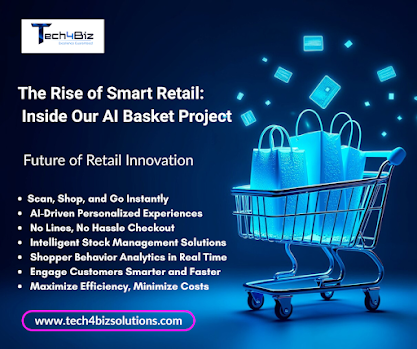How Large Language Models are Revolutionizing Sales Strategies in Service-Based Industries
The advent of artificial intelligence has brought transformative changes to businesses across industries. For service-based industries, particularly those that rely heavily on customer interaction, Large Language Models (LLMs) are playing a pivotal role in reshaping sales strategies. By enabling smarter interactions, improving customer service, and enhancing decision-making, LLMs are becoming indispensable tools for businesses seeking to boost revenue and optimize their sales processes.
What Are Large Language Models (LLMs)?
LLMs, like GPT-3, are advanced AI models capable of understanding and generating human-like text based on massive amounts of data. These models can process natural language, making them ideal for tasks involving communication, such as customer service, content creation, and sales.
Key Ways LLMs are Revolutionizing Sales Strategies
1. Personalizing Customer Interactions at Scale
One of the most significant challenges for sales teams in service-based industries is offering personalized experiences at scale. Traditional customer interactions can be time-consuming and inconsistent. LLMs, however, can tailor responses based on individual customer data, preferences, and previous interactions, allowing for highly personalized and contextually relevant communication at scale.
For instance, LLMs can provide real-time personalized recommendations, offer product or service suggestions, and craft targeted messages that resonate with each unique customer, thus enhancing the chances of conversion.
2. Enabling 24/7 Sales Assistance
In today’s digital age, customers expect assistance at any time of the day. LLMs help businesses meet this demand by powering intelligent chatbots and virtual assistants. These AI-powered tools can handle customer inquiries, process sales leads, and provide detailed information about services, all without human intervention.
By offering 24/7 availability, businesses can nurture leads around the clock, answer questions instantly, and capture more sales opportunities. This increases sales efficiency while simultaneously improving the customer experience.
3. Automating Lead Generation and Qualification
Lead generation and qualification are essential to driving sales, but they can be time-consuming. LLMs can automatically analyze and qualify incoming leads based on predefined criteria, helping sales teams focus on the highest-potential prospects.
For example, when a potential customer visits your website or engages through social media, an LLM can analyze their inquiries, behaviors, and engagement patterns to classify the lead as warm, cold, or hot. This intelligent lead scoring ensures that your team spends time on leads most likely to convert, increasing sales effectiveness.
4. Enhancing Content Creation for Marketing and Sales
Content marketing is a key strategy for driving sales, but creating engaging and informative content at scale can be challenging. LLMs can generate high-quality blog posts, social media content, email newsletters, and sales copy, ensuring consistent messaging that aligns with customer needs and preferences.
For service-based industries, using LLMs to craft persuasive content can drive traffic, increase engagement, and ultimately lead to higher conversion rates. These models can also tailor content to specific audiences, helping to create content that resonates with each segment.
5. Smarter Sales Predictions and Insights
LLMs are not just about generating text or responding to customers—they can also process large datasets to uncover actionable insights. By analyzing historical sales data, customer behaviors, and market trends, LLMs can help businesses make smarter sales forecasts and pricing decisions.
With these predictive capabilities, sales teams can identify opportunities for upselling or cross-selling, forecast demand more accurately, and adjust their strategies accordingly. This data-driven approach results in increased sales and optimized resource allocation.
6. Automating Routine Sales Tasks
Sales teams often spend a significant portion of their time on administrative tasks such as scheduling meetings, drafting follow-up emails, and updating CRM systems. LLMs can automate many of these repetitive tasks, allowing your team to focus on high-value activities like building relationships and closing deals.
For example, LLMs can draft personalized emails based on a customer’s profile, ensuring follow-ups are timely and relevant. This automation helps improve team productivity, reduces human error, and accelerates the sales cycle.
7. Enhancing Customer Education and Engagement
In service-based industries, educating customers about your offerings can be a complex process. LLMs can create interactive guides, FAQs, and knowledge bases to help customers understand the value of your services.
By offering quick access to information, LLMs ensure customers are better informed, making them more likely to convert into paying clients. With a well-informed customer base, sales teams can focus on delivering value rather than just explaining features.
8. Building Stronger Customer Relationships
LLMs can engage in long-term customer relationship management by sending personalized updates, newsletters, or promotional offers. Additionally, LLMs can track customer behavior over time and adjust outreach accordingly.
For example, if a customer shows interest in a particular service but doesn’t immediately convert, an LLM can follow up with a tailored offer or information to encourage conversion. This continuous engagement builds trust and increases the likelihood of repeat business.
The Future of LLMs in Sales Strategy
The role of LLMs in sales is rapidly evolving. As technology continues to advance, these models will become even more capable of analyzing customer data, predicting behaviors, and automating increasingly complex tasks. Future trends include:
- AI-Driven Sales Coaching: LLMs could assist in training sales teams by simulating real-life scenarios, helping them handle objections, and refining communication strategies.
- Integrated AI-CRM Systems: LLMs will be integrated with customer relationship management (CRM) systems, offering a more seamless flow of information and personalized customer interactions.
- Real-Time Sales Analytics: LLMs will provide sales teams with real-time insights, enabling them to adjust strategies and make informed decisions faster.
Conclusion
LLMs are changing the way businesses approach sales in service-based industries. By improving personalization, automating routine tasks, and providing valuable insights, LLMs help sales teams close deals faster, enhance customer satisfaction, and ultimately increase revenue. As this technology evolves, its potential to transform sales strategies in service-based industries will only continue to grow.


.png)
Comments
Post a Comment